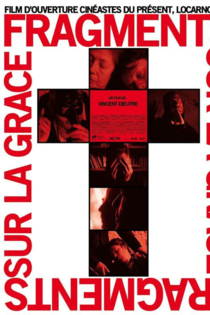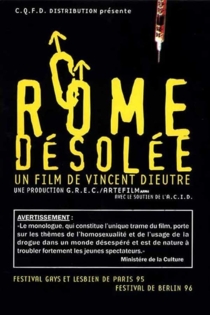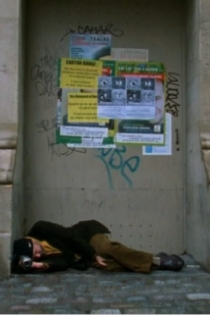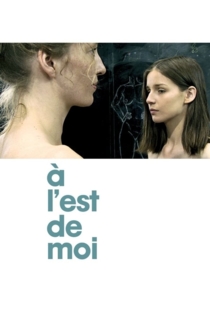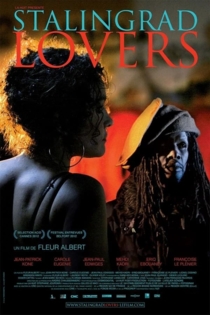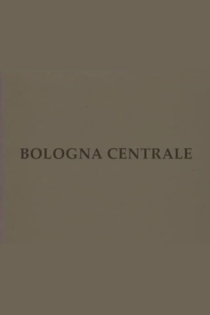
Vincent Dieutre
1960 (65 лет)Vincent Dieutre (born November 25, 1960 in Le Petit-Quevilly) is a French film director and screenwriter. His films are primarily in the genre of docudrama, blending aspects of both documentary film and fiction. He is openly gay.
Description above from the Wikipedia article Vincent Dieutre, licensed under CC-BY-SA, full list of contributors on Wikipedia.
De la cage aux roseaux
Alessandro Avellis
André Téchiné, Catherine Corsini
A journey into contemporary French cinema through a series of exclusive interviews with the leading figures of GLBT French cinematography: André Téchiné, Catherine Corsini, Gaël Morel, Olivier Ducastel, Jacques Martineau and other old acquaintances of our film festival. This documentary offers an interesting insight into the official and non-official cinema from the point of view of gender identity. A look behind the scenes: discussing issues like censorship and self-censorship, women' cinema and misogyny, transvestism and homo-eroticism, cinema d'auteur and popular cinema (was the Nouvelle Vague homophobic?). From past to present, from Jacques Demy to François Ozon.
De la cage aux roseaux
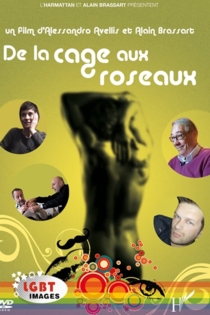
Orlando Ferito - Roland blessé
Vincent Dieutre
The third, Sicilian, part of the “films of Europe” cycle, Orlando ferito Roland blessé is a multifaceted ‘chanson de geste’, marked by anxiety and irrigated by hope. Or two viatica: the testamentary document written by Pasolini not long before his death (Le vide du pouvoir en Italie), which metaphorically communicated his political despair about the “disappearance of the fireflies”, and that of Georges Didi-Huberman (2009), which, on the contrary, refers to their “survival”. Vincent Dieutre travels across the far south of Europe in search of today’s “fireflies” who invent a political life on a daily basis.
Orlando Ferito - Wounded Roland
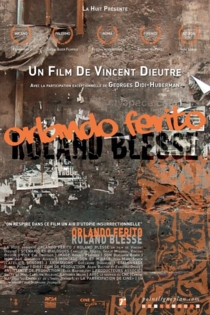
Entering Indifference
Vincent Dieutre
I am in Chicago for a festival but also to reflect, to know where I stand with the other. With the world too. There, everything that undermines our daily life is exacerbated; love, snow and oblivion, my letter is the chronicle of "this winter of love", the unstable record of this freezing of reality. Welcome to indifference.
Entering Indifference

Trilogie de nos vies défaites
Vincent Dieutre
Brice Michelini, Joana Preiss
Our feelings, our choices, even our death wander on the web like options, like ghosts. For the time of a last train journey, for the time of a love chat, a deadly chat, or an unlikely casting, three generations will try to definitively wrest from virtual nomadism, to put an end to self-exile that undo our lives... Between Rotterdam and Tourcoing, diving in the Flatlands, tenuous and fragile...
Trilogy of Our Lives Undone
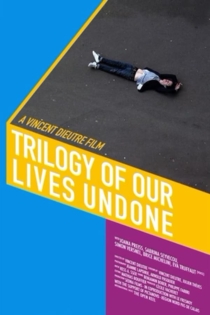
Jaurès
Vincent Dieutre
Vincent Dieutre, Eva Truffaut
A studio. A man and a woman. Moving images on the screen, which he comments on, spurred on by her questions. All the footage was shot from the window of a flat: views of the street, the metro line running above it, the canal, into the windows of the buildings opposite. The flat belongs to the man’s lover, the man is a guest, spending his nights there but never his days. By the canal, young men from Afghanistan set up makeshift shelters as the man looks on, developing increasing sympathy for them. The seasons change, winter, spring, summer.
Jaurès
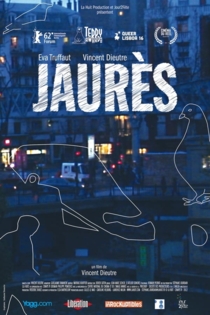
Leçons de ténèbres
Vincent Dieutre
Andrzej Burzynski, Hubert Geiger
“The Nineties had a pretty bad start”, this is how Vincent Dieutre introduces us to the shadows of his personal universe in those years going through Utrecht, Naples and Rome. In these three cities and two love affairs guide a homosexual man on his nightly search for lost beauty. In a cross between a diary and a baroque play the film reconstructs the fragments of a fateful journey against a Caravaggio backdrop. Painting, sensuality, losing oneself in a cityscape: the Leçons de ténèbres form an obscure fresco, a white-hot collage of trashy vanity.
Tenebrae Lessons
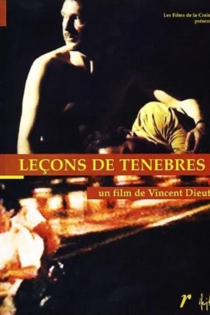
Mon voyage d'hiver
Vincent Dieutre
Itvan Kebadian, Vincent Dieutre
“My best friend, Anna, asked me if I would mind taking her fifteen-year-old son Itvan to Berlin with me. I accepted immediately.” An elegant, refined man in his forties sets off with Itvan on a long, enjoyable journey, his Winter Journey. They cross snowbound Germany by car. As the man drives the boy through cities and countryside, Itvan discovers the past and the vast job of reunification now underway. Poetry and culture are also part of the journey, which is accompanied by classical German music. When their paths cross with the man's former lovers or the journey provides unexpected encounters, Itvan also gets to know more about the man's own life. When they finally arrive in Berlin, their ways must part. Itvan watches the man leave, taking the melancholy of his existence with him. However their journey together has created an unbreakable tie between the two men. Itvan will never be the same again.
My Winter Journey
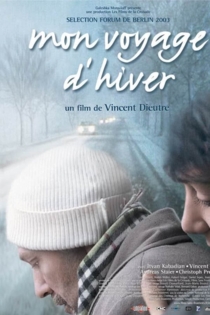
Only the Fire
Christophe Pellet
Mireille Perrier, Stanislas Nordey
At the end of June in Paris: Mireille accompanies his friend Thomas, a solitary and restless being, during a walk to Père Lachaise. Thomas is very agitated, worried. He confides to Mireille that he wishes to be cremated in the event of death. In September: after a period of holidays, Mireille returns at her home. She and his friends do not any more manage to contact Thomas. After investigation, Mireille learns that Thomas died in August, only. As he has no family his body was interred in the square of the needy of the new cemetery of Thiais. Mireille wants to honor the last wills of his friend, but the law is strict: to dig up the body and cremate it, the services of the city hall have to have the signature of a member of Thomas's family. Mireille learns that Thomas had a younger brother, Melchior. But But the young man, marginalized, abandoned for years by his older brother, refuses to sign the licence to dig up.
Only the Fire
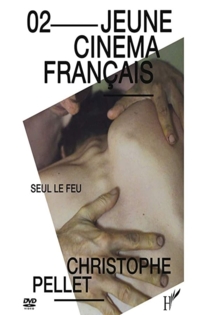
Les Fantômes de la veille
Manuel Billi
Olivia Csiky Trnka, Matthieu Favette
A shadow in the woods, a sunny summer afternoon. Antoine and Philippe part without saying goodbye. That same day, a blond girl writes their names on a window of her house. Her mission is to heal other people’s wounds, help lost lovers to forget or disappear.
Ghosts of Yesterday
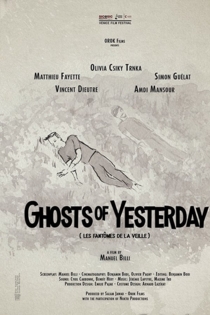
Viaggio nella dopo-storia
Vincent Dieutre
Simon Versnel, Vincent Dieutre
A couple travels to Italy. During their trip, the state of their relationship becomes clear to them: They argue, take different paths and wonder whether to divorce. Vincent Dieutre has remade Viaggio in Italia and adapted it to his own life. Alex and Kate have become Alex and Tom, played by Vincent himself and his partner Simon. This new couple goes to the same places, experiences similar things, but their time in Naples is inevitably not the same. The city has changed, as has the nature of relationships, tourism has become more digital. As the two become increasingly alienated, Vincent the filmmaker moves through the city with his camera. He talks about how Rossellini’s film shaped him. We hear his thoughts about a remake, notes to himself, his discussions with a copyright lawyer. In Vincent and Simon’s world, much like that of Tom and Alex, the procession of the final scene gives way to a football match. What was still sacred back then becomes a riot here.
Journey Into Post-History

Fragments sur la grâce
Vincent Dieutre
Françoise Lebrun, Mireille Perrier
A filmmaker and his crew try to enter the passionate world of Port-Royal and of Jansenism. Another Age of Louis XIV comes to life, the age of Pascal, Racine and of the “Friends of Truth”. The film itself comes up against the unanswerable question of grace.
Fragments sur la grâce
